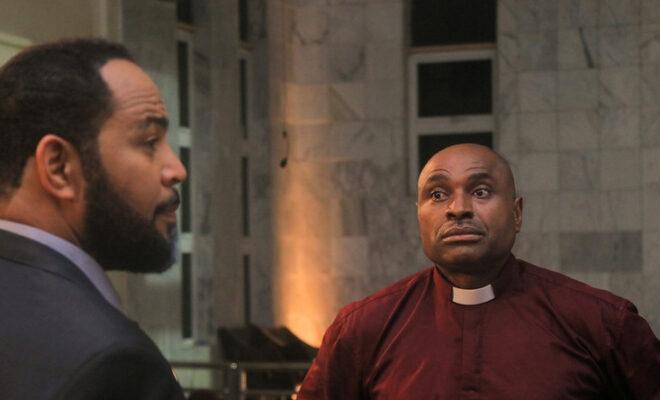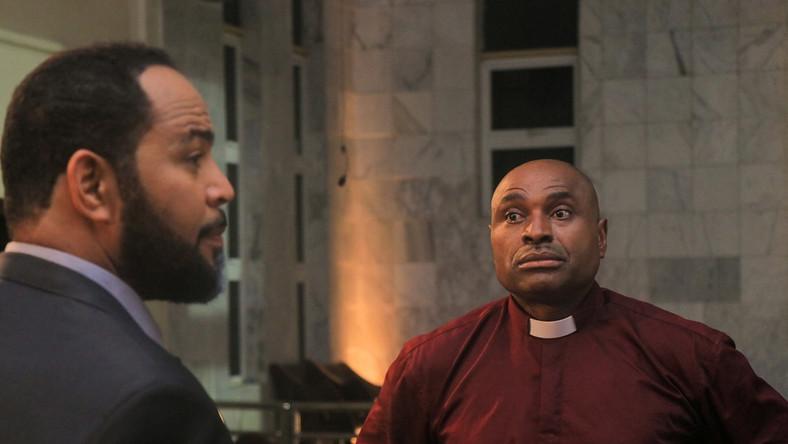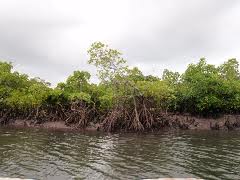Old Nollywood demonised traditional religions. New cinema says ‘No More’

Witches, gods, folklore take two.

A scene from the 2019 Nollywood sequel, Living in Bondage: Breaking Free. Credit: R&B PR.
In Narrow Escape, a classic 1999 Nollywood film, the embattled protagonist Reverend Emmanuel is facing a formidable enemy: his father. The two men are on either side of the well-known battle line of good vs. evil. Reverend Emmanuel is of the Christian faith, spreading the gospel. His father is a traditional worshipper.
“In the past twelve years, we have had fourteen Reverend Fathers in Umuaka. Six left here as corpses,” a concerned elder warns Reverend Emmanuel in one scene. The cause of death? Murder by a powerful cult of traditional worshippers.
This line exemplifies the specific religious theme of many films made in Nigeria at that time. Characters representing the Christian faith – pastors, deacons, reverends, believers – were inherently good and under attack by adherents of traditional faith – depicted as witches or ritualists – who were seen as full of evil.
Narrow Escape, with its all-star cast, was a hit as were other films with similar themes. End of Wicked depicted the wickedness of witches; Billionaire Club was about sacrificing loved ones for wealth; Festival of Fire followed the persecution of missionaries. It is not hard to see why these films were popular. They drew inspiration from the policies of colonial missionaries who saw traditional customs as evil and irreligious. This message found a receptive audience in one of the world’s most religious countries.
Yet today, the tides have turned. Filmmakers in Nigeria are now exploring previously-maligned traditional faiths and subverting how they have been depicted. What changed? The answer is likely to be found in Nigeria’s changing relationship with religion.
Christianity is increasingly being questioned, especially amongst young people in Nigeria, particularly as Christian leaders have been linked to less than Christian-like activities such as rape, money laundering, and political influence-peddling. At the same time, agnosticism is on the rise, while atheism, which would have been seen as heretical a few years ago, is no longer a shocking belief. There is also an increased engagement with alternative belief systems.
In 2018, Nigerian lawmaker Timothy Owoeye was about to take a ritual bath when hoodlums emerged and started to record him. They blackmailed him for money, but released the video even after he paid up. Contrary to expectation, however, Owoeye’s use of traditional practises was not met with unanimous critique or disgust. Instead, many people came to his defence, stressing his right to freedom of religion.
It appears the change in perception of Christianity as inviolable and the increasing accommodation of alternative belief systems have trickled into Nollywood. A number of contemporary filmmakers are particularly keen on undoing the poor perception of indigenous faiths and complicating our understanding of them.
In C.J. Obasi’s Afro-futuristic short Hello, Rain, an experiment wrought by juju and technology goes wrong, turning its main characters evil. But that was not what was intended. “It is more interesting to present juju like any element of creation, and if that’s the case, then it isn’t inherently evil,” says Obasi. “It is what you choose to do with it.”
For his next film, Mami Wata, Obasi is exploring similar themes, this time through the story of mythological water goddess. “Mami Wata is more than just folklore,” Obasi writes on the film’s fundraiser page. “She is a water goddess who brings health, prosperity, goodwill. She is the symbol of the strength and power of the black woman, but no thanks to religion and colonization, she has been demonized.”
In Abba Makama’s The Lost Okoroshi, the filmmaker delivers a witty critique of the disconnect between the modern Nigerian and indigenous traditions. The film explores the relationship between a man and a masquerade, believed to be an ancestral spirit and often thought to be malevolent. Religious people simply do not associate with masquerades. But in Makama’s film, the lead character becomes one body with the spirit, and they both embark on a spiritual journey.
“Masquerades have generally been demonized and considered bad omens in western religions,” he told Indiewire. “With this project, I aim to change the narrative and reintroduce the masquerade as a colorful, playful and benign entity.”
There are other young filmmakers working the trend too. Daniel Oriahi tells a story centred on a spiritual spouse in Sylvia without a climactic battle between the witch and a pastor as seen in similar old Nollywood films like Karashika and Nneka: The Pretty Serpent. Living in Bondage: Breaking Free, the impressive 2019 sequel to the 1992 film that kickstarted the Christian vs traditional worshipper theme in Nollywood, also carefully stays away from the good against evil tropes and pursues a psychological resolve.
In one moment of that film, a character even mocks old Nollywood’s heavy-handed depiction of traditional faith, commenting: “What do you think this is? Nollywood? We don’t do those things anymore.”
Given our tastes change in this burgeoning film industry, we’ll have to wait and see if this is the final word.





This is a bold and right step in the right direction
Well written with so much beneficial information.
Why is it that Google never write or talk about the Indigeniuos people of Biafra (IPOB).
JESUS is GOD no matter what we say or think we can’t just change it.GOD ALMIGHTY has chosen Nigeria to be HIS point of contact and no one can change that.Whereever the Children of GOD are gathered,evil struggles a lot to prevail but has never. Just as darkness can not overshadow light.
This is great news! This change has been a long time coming and I’m glad it’s finally here. I am happy that we are looking at ourselves and our traditions in a more positive light. Its way overdue. Very well written article.
I absolutely loved Makama’s The Lost Okoroshi. It was a deviation from the norm.
The West has her religion and beliefs. Same as the Asian countries of the East. Why can’t Africa practise hers without been tagged diabolic and archaic?
As long as no one is killing anyone, subjecting girls into reprehensible acts in the name of religion or culture etc, I am all for people exploring their heritage.
Live and let live.
side effects of chloroquine https://chloroquineorigin.com/# side effect of hydroxychloroquine
https://cialiswithdapoxetine.com/ cialis 20 mg
cialis 20 mg https://cialiswithdapoxetine.com/